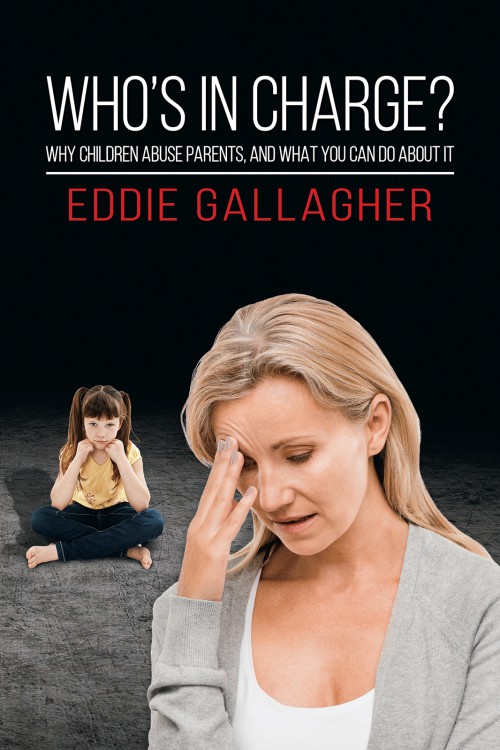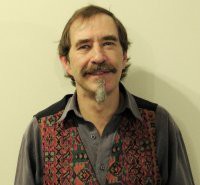
By: Eddie Gallagher
*Available directly from our distributors, click the Available On tab below

“Wise parents will treat expert advice the same way they would follow the wisdom of Aunt Minnie or Grandma Ellen – they must correct for personalities. Advisers have their own character, quirks, perspectives, and biases.” Eyer[i]
Many ‘experts’ on parenting and children write as if what they say is based on solid scientific knowledge. This is generally hogwash![ii] I love the science of psychology and have been reading it (along with psychiatry, sociology, anthropology, etc.) for 45 years. But the science of psychology is not yet at a stage where it can tell parents how to parent. We may be guided and influenced by research and theories, but when people have attempted to base parenting advice on a particular theory, the results are often disastrous. And much of the research is dubious and open to alternative interpretations[iii]. So you may want to know a bit about me so you can judge my ideas and evaluate my ‘character, quirks, perspectives and biases’. If you don’t want to know where my quirks come from then this is one of the sections you can skip (though I may sulk).
I was born in Glasgow, Scotland, in a proudly working-class family of Irish immigrants. I was a mildly obnoxious teenager in the sixties. This time and place coloured my view of the world, though I’ve been forced to rethink much of the hippy-era stuff. Glasgow was a rough place and I grew up with a fair amount of violence and abuse. Unusually for that time, my parents never smacked us and there was no violence in my home (not even between brothers and sister, although my brother and I did use my sister’s dolls for target practice with an air rifle… sorry). There was plenty of violence on the streets and schoolyards, and even more in the classrooms where our teachers physically abused us on a regular basis.
I loved science and just happened to be interested in psychology when it was time to apply for University. I was more interested in animal behaviour than human at first (perhaps that’s why I work with adolescents), but I drifted into social work. I’ve been working with families and young people for over forty years in a variety of health and welfare roles: psychologist, social worker, family therapist, youth worker, residential worker. I’ve also taught on social work, counselling, welfare and family support courses as well as giving numerous workshops on violence to parents and other topics. I’ve been a foster parent and have one son in his early twenties. He plays in a ‘Death Metal’ band so, obviously, I’ve been a failure as a parent. The number of troubled families I have dealt with is in the thousands. As they are all different, I never stop learning. I’ve a degree in psychology and two in social work, but I think my experience is worth more than my qualifications.
Lots of things in my career happened by accident. I believe this is true of many people’s lives and this means that we cannot predict how any individual will turn out.
I first became interested in family violence in Yorkshire, England in the 1970s. A colleague asked me to help out with some voluntary work, which involved recreational activities for the children from a large women’s refuge. He quietly withdrew leaving me to take from five to twenty children of various ages swimming once a week, accompanied by two or three student volunteers. I did this for three years without anyone drowning (scary to think that no one ever mentioned insurance). It was surprising I lasted so long as the clique of workers and volunteers who ran the refuge proudly referred to themselves as ‘radical lesbian-separatist-anarchist-feminists’. It took three years before they apparently realised that I was a man (the kilt must have fooled them), and they then banned me (along with anyone else cursed with a Y chromosome) from having anything to do with the organisation.
At the same time that I was volunteering at the refuge, I worked as a social worker, which included quite a bit of child protection work. With hindsight, it’s surprising just how separate the two activities were, but back in the seventies, and for most of the eighties, the effects of domestic violence (DV) on children was just not on the radar; no research had been conducted and nothing written about it. We were aware of DV but it wasn’t seen as directly relevant to the children in the families unless they were also physically abused.
Around that time, I became a specialist worker with the intellectually disabled and their families, again by chance. My team leader had mistakenly thought I was interested in what we then called ‘Mental Handicap’ rather than ‘Mental Health’ and gave me all the relevant cases for almost two years until I noticed that no one else seemed to be doing this work. By then it was an interest and when a specialist position came up, I was persuaded to take it. I worked intensively with people with intellectual disabilities, and their families, for several years. Disability remains a big interest, and I now see lots of kids, and adults, with various disabilities, especially autism.
The early nineties found me counselling families in Melbourne, Australia, in a low-income, multi-cultural area (where I still work). I happened to have four families at the same time, all consisting of sole mothers with sons aged eleven to thirteen who were in some way being abusive towards them. I realised one day that I was hearing similar things from them and saying similar things to them. It seemed logical to get them together and all four were enthusiastic. We were joined by a fifth mother whose fifteen year old daughter was beating her up. We called ourselves the MAAD group, for Mothers against Adolescent Domination. I like this title but can’t use it as it excludes fathers.
This got me interested in violence towards parents, and I looked for any literature on the subject. I was surprised to find how little had been written about it. There were thousands of articles and hundreds of books on domestic violence and even more on child abuse but only about twenty articles on violence to parents and (until 2004) no books. I was even more surprised that much of what was written assumed that parents who were being victimised by their children were authoritarian, aggressive or abusive, in other words that they deserved it! This was definitely not what I was seeing! This seemed unjust, misguided and a clear case of blaming the victim.
Around the same time, I also began facilitating a group for men who perpetrate domestic violence (called the “Men’s Responsibility Group”) which I did for over twenty years and still do. I was interested in various aspects of family violence including the effects on children of exposure to domestic violence. I soon realised that many of the young people (almost half) who were being abusive to their parents had themselves been exposed to domestic violence (invariably the abusive father was no longer in the home). At first I saw violence to parents, as most people still do, as a child behaviour problem rather than as a form of family violence (it is, of course, both). I also avoided calling the children’s behaviour ‘abuse’ for quite some time.
Over the past twenty-three years, I have kept simple records of the characteristics of families where children are abusing parents, four hundred and eighty families so far. Over the past thirteen years, I’ve run and developed a group program for parents, called ‘Who’s in Charge?’. I see both parents and their aggressive children in counselling. I give regular talks to workers and parents on violence to parents. I’ve studied the research literature and written a Master’s Thesis on this. I’ve been invited to talk on this subject at conferences in Australia, England, Ireland and Spain. Not bad for a sole worker without any organisation or funding! Through my website I’ve had contact with parents and workers from all over the world concerned about the rising tide of parent abuse.
Of the four hundred and eighty in my sample, I’ve personally worked with over three hundred and fifty of these families containing five hundred and fifty parents. Besides these parents, I’ve met several hundred other parents who didn’t quite fit into my sample or on whom I didn’t have enough information to include them. All in all, I have met well over six hundred abused parents and about three hundred of the children who were abusing them, many of whom I’ve got to know well. I often meet their brothers and sisters and sometimes other relatives.
Makes me tired just to think about it!
I sometimes have to try hard not to think about the weight of tragedy and hurt that this represents. What keeps me going is a sense of humour and the fact that I’ve been able to help many of these families. There is a lot at stake. It’s more than just a year or two of misery for entire families. These young people put themselves at risk in many ways, some of which might have lifelong effects, and by practicing being an abuser they are making it more likely that they are going to abuse their partners and/or children in the future.
Although I now work in private practice, most of my sample has been through welfare agencies or community health services and my private customers are totally or largely paid for through Medicare (no one pays more than Aust$15 per hour and it’s a free service for anyone who isn’t working or is on a low wage). Since I work in a working-class, multi-cultural area, my sample is definitely not biased towards middle class clients. Private practice here in Australia is rather different to the UK or America as it’s a free service to anyone not working or on a low wage. Some people appear to think I am not critical enough of the parents I work with and would like to believe I have a nice middle-class clientele so they can cling to their parent-blaming theories. Overall, my clientele are anything but middle class, though I’ve stated that I see more abused parents who are middle class than I would expect. I’ve never implied that these problems are a purely middle-class issue – far from it.
This book is based more on my experience than on the literature or on theory. Although I’ve spent a lot of time studying the literature, it hasn’t had a big influence on the way I work. Very little is of practical use (when I started there was nothing practical) and it’s still full of contradictions and prejudices, especially rampant parent blaming.
[i] Eyer (1996) p102. By a meaningless coincidence I had a Grandma Minnie and an Aunt Ellen.
[ii] “Not to put too fine a point on it, but much of the advice from the parenting experts is flapdoodle.” Pinker (2002) p384.
[iii] E.g. see Harris (1998), Amber (1992), Kagan (1998), Rutter (1993).
We use cookies on this site to enhance your user experience and for marketing purposes.
By clicking any link on this page you are giving your consent for us to set cookies